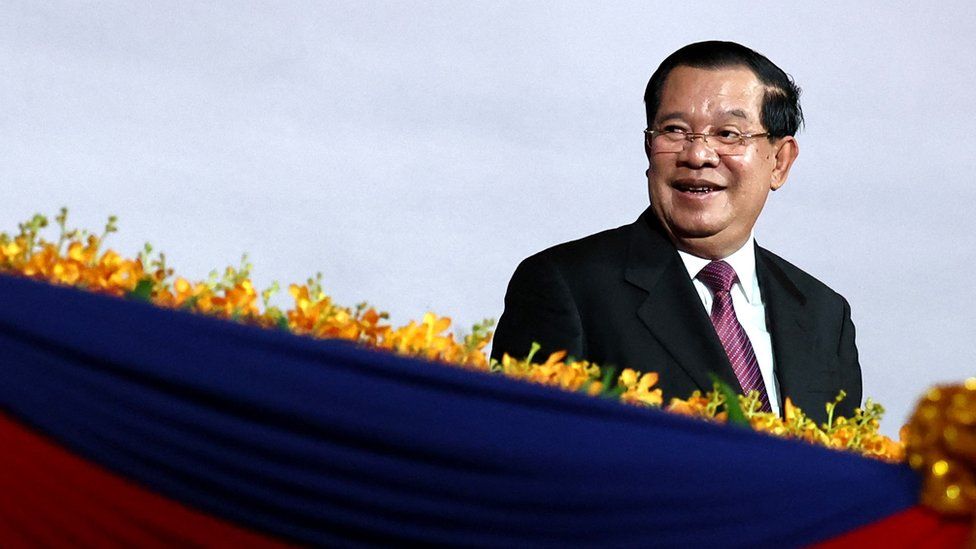ARTICLE AD BOX
 Image source, Reuters
Image source, Reuters
Cambodia's leader of 38 years has switched social media platforms
Cambodia's leader Hun Sen has quit Facebook after its oversight board recommended he be suspended from the platform for six months.
Hun Sen had called for violence against his political opponents in a video which was viewed 600,000 times.
His move came days before he launches a re-election campaign to extend his 38-year-long rule.
Hun Sen was a prolific Facebook user and his page had 14 million followers. He has moved to Telegram and TikTok.
However, critics say the 69-year-old leader's massive social media following was due in part to bots or fake accounts.
Facebook parent Meta's Oversight Board on Thursday recommended his suspension for six months over the video, which was posted in January. It overturned an earlier decision by Facebook to keep the video live, citing "newsworthiness".
"Given the severity of the violation, Hun Sen's history of committing human rights violations and intimidating political opponents, as well as his strategic use of social media to amplify such threats, the Board calls on Meta to immediately suspend Hun Sen's Facebook page and Instagram account for six months," the Board said in a statement.
In the video, Hun Sen threatened opposition leaders against accusing his party of vote theft in elections due to be held in July.
"Either you face legal action in court, or I rally [CPP] people for a demonstration and beat you up," he said.
Soon after the Oversight Board's decision was announced, Hun Sen said that he had asked an assistant to delete his Facebook account.
Hun Sen has served as Cambodian Prime Minister for more than 38 years, and is one of the longest-serving political leaders in the world. His rule has been dogged with allegations of human rights abuses, and he has also been accused of decimating all political opposition ahead of the July vote.
In May, Cambodia's electoral body disqualified his sole credible challenger, the Candlelight Party, citing a lack of appropriate paperwork.
And earlier in March, opposition leader Kem Sokha was sentenced to 27 years house arrest for treason, a charge that he denies.
Hun Sen's exit from Facebook is his way of pre-empting the Meta board's suspension, says Sebastian Strangio, author of the book "Hun Sen's Cambodia".
Mr Strangio told the AFP news agency that Hun Sen's decision to move to TikTok and Telegram also reflects Cambodia's broader foreign policy pivot to China and Russia.
TikTok's parent, ByteDance, is based in Beijing while Telegram was founded in Russia, where it is widely used by the public and even the Kremlin.
"Based on their track record, it is much less likely that these two platforms will restrict Hun Sen from using them as he sees fit, including as a vehicle for baiting, goading, and threatening his opponents," Mr Strangio said.
Human Rights Watch (HRW) described Hun Sen's departure from the world's largest social media platform as an overdue "face-off between Big Tech and a dictator over human rights issues".
"The stakes are high because plenty of real world harm is caused when an authoritarian uses social media to incite violence -- as we have already seen far too many times in Cambodia," said HRW Deputy Asia Director Phil Robertson.

 1 year ago
26
1 year ago
26








 English (US)
English (US)